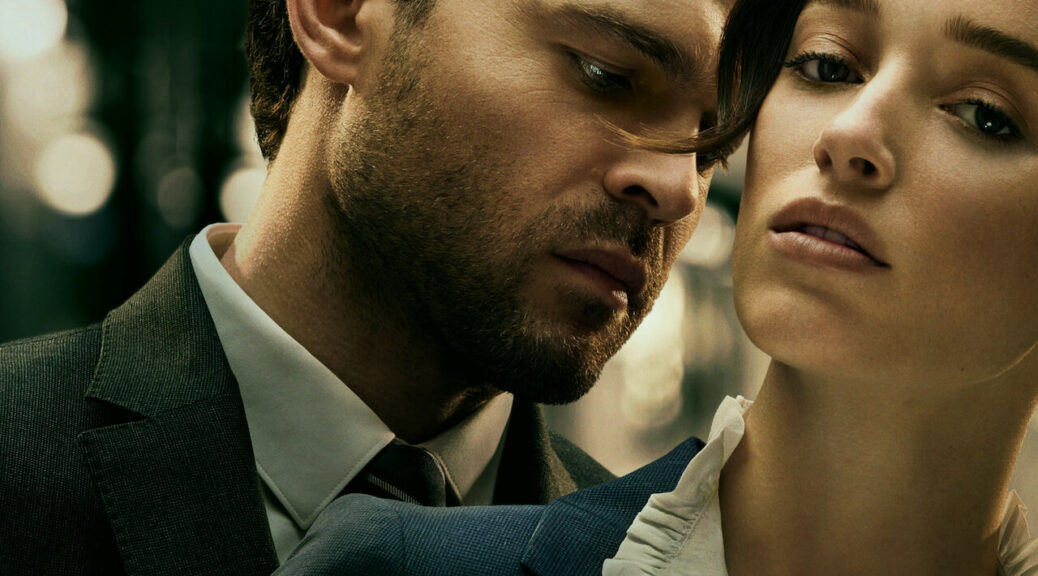Fair Play
by Brandon Thomas
Emily (Phoebe Dynever of Bridgerton) and Luke (Alden Ehrenreich of Solo: A Star Wars Story) are several years into a whirlwind romance. Despite being madly in love – and newly engaged to boot – they have to be careful about how public they are with their relationship. See, Emily and Luke work for a cutthroat hedgefund firm where relationships among staff are frowned upon. After Emily earns a valued promotion in the firm – and also finds herself Luke’s boss – things between the young couple take a dramatic turn for the worse.
Workplace gender politics have been explored on film for decades and through many different lenses and genres. Films like His Girl Friday, 9 to 5, and Norma Rae all used the interplay between the sexes to craft timeless stories. Some films showed more interest than others in actually commenting on the complexities of these relationships in a place of work. Most, however, just mined it for obvious dramatic or comedic content. In more modern times, movies like Fair Play attempt to make a more complex statement on the mixing of personal life and work life and often from the perspective of female filmmakers.
So much of Fair Play’s success or failure rides on the relationship between Dynever and Ehrenreich. Thankfully, both bring their A game and end up absolutely sizzling on the screen. There’s a lived-in element to their relationship that feels genuine and passionate.
Equal attention must be given to writer/director Chloe Domont’s intense screenplay. Her patience as both a writer and director pays dividends in many of the film’s longer scenes – allowing the actors and the writing to shine concurrently. For most of Fair Play’s running time, the story never outpaces the characters and that’s a testament to Domont’s handling of the narrative.
While not at all flashy, Domont’s direction is specific and has an intriguing point of view. Set amongst the hustle-and-bustle of New York City, there’s never a lingering shot of Manhattan’s gorgeous skyline. The direction is often kept tight and claustrophobic – keeping scenes focused on the characters and the chaos bubbling up around them.
It’s all the more disappointing when Fair Play stumbles late. The complex drama is jettisoned in favor of a more standard thriller that might’ve starred Michael Douglas sometime in the 1990s. The need to make one of the characters a cliched villain feels tacked on and not spiritually in line with the thoughtful nature of the film’s first two acts.
Despite a less than thrilling conclusion, the majority of Fair Play is a taut drama that puts character before plot.

